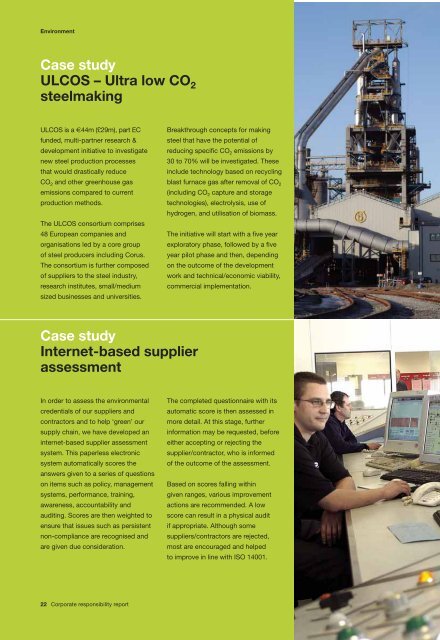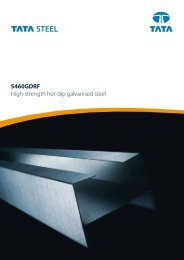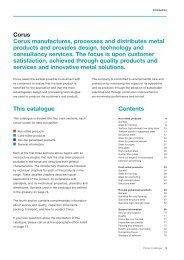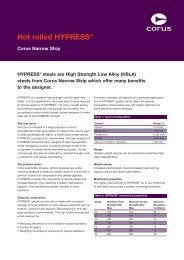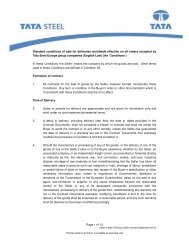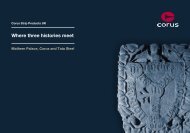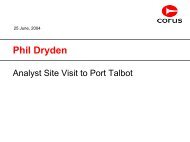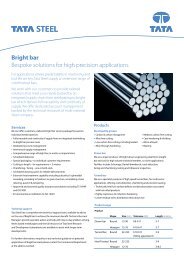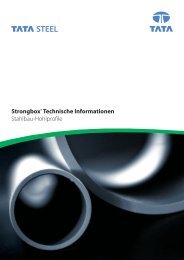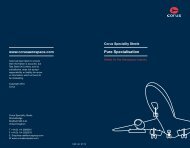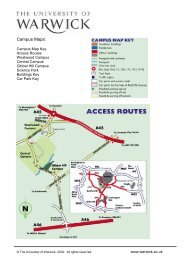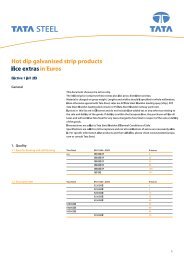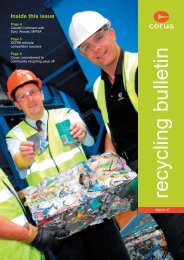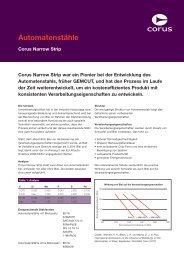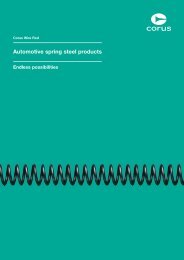Corporate responsibility report 2004 - Tata Steel
Corporate responsibility report 2004 - Tata Steel
Corporate responsibility report 2004 - Tata Steel
Create successful ePaper yourself
Turn your PDF publications into a flip-book with our unique Google optimized e-Paper software.
Environment<br />
Managing Case studycorporate <strong>responsibility</strong><br />
ULCOS – Ultra low CO 2<br />
steelmaking<br />
ULCOS is a €44m (£29m), part EC<br />
funded, multi-partner research &<br />
development initiative to investigate<br />
new steel production processes<br />
that would drastically reduce<br />
CO 2 and other greenhouse gas<br />
emissions compared to current<br />
production methods.<br />
The ULCOS consortium comprises<br />
48 European companies and<br />
organisations led by a core group<br />
of steel producers including Corus.<br />
The consortium is further composed<br />
of suppliers to the steel industry,<br />
research institutes, small/medium<br />
sized businesses and universities.<br />
Breakthrough concepts for making<br />
steel that have the potential of<br />
reducing specific CO 2 emissions by<br />
30 to 70% will be investigated. These<br />
include technology based on recycling<br />
blast furnace gas after removal of CO 2<br />
(including CO 2 capture and storage<br />
technologies), electrolysis, use of<br />
hydrogen, and utilisation of biomass.<br />
The initiative will start with a five year<br />
exploratory phase, followed by a five<br />
year pilot phase and then, depending<br />
on the outcome of the development<br />
work and technical/economic viability,<br />
commercial implementation.<br />
Case study<br />
Internet-based supplier<br />
assessment<br />
In order to assess the environmental<br />
credentials of our suppliers and<br />
contractors and to help ‘green’ our<br />
supply chain, we have developed an<br />
internet-based supplier assessment<br />
system. This paperless electronic<br />
system automatically scores the<br />
answers given to a series of questions<br />
on items such as policy, management<br />
systems, performance, training,<br />
awareness, accountability and<br />
auditing. Scores are then weighted to<br />
ensure that issues such as persistent<br />
non-compliance are recognised and<br />
are given due consideration.<br />
The completed questionnaire with its<br />
automatic score is then assessed in<br />
more detail. At this stage, further<br />
information may be requested, before<br />
either accepting or rejecting the<br />
supplier/contractor, who is informed<br />
of the outcome of the assessment.<br />
Based on scores falling within<br />
given ranges, various improvement<br />
actions are recommended. A low<br />
score can result in a physical audit<br />
if appropriate. Although some<br />
suppliers/contractors are rejected,<br />
most are encouraged and helped<br />
to improve in line with ISO 14001.<br />
22 <strong>Corporate</strong> <strong>responsibility</strong> <strong>report</strong>


